Pūrangakura attends 4th International Indigenous Health and Wellbeing Conference
Pūrangakura attends 4th International Indigenous Health and Wellbeing Conference
Mon 4, August, Escence Kingi Williams
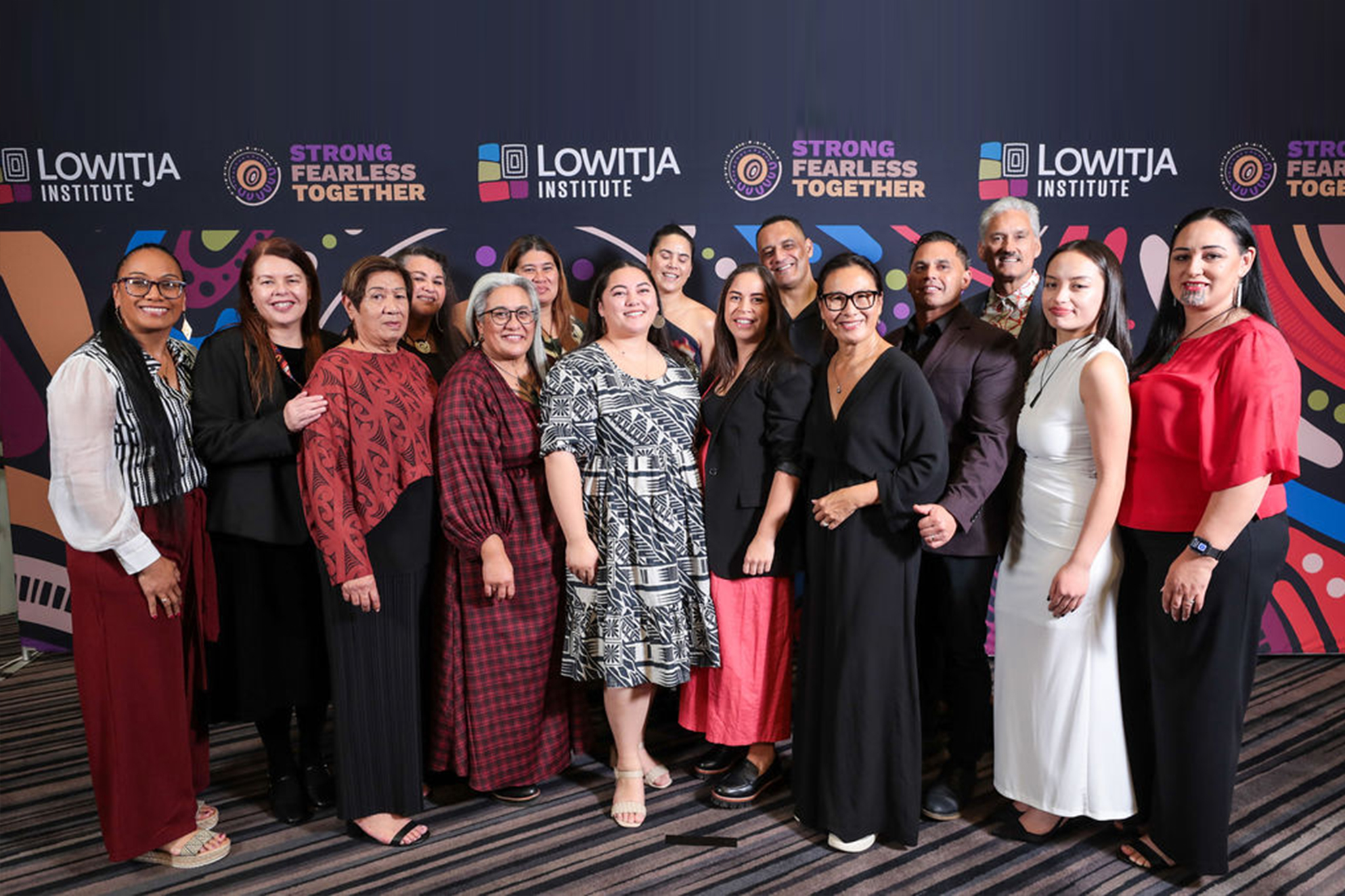
Our Pūrangakura whānau were honoured to be part of this kaupapa, standing alongside Indigenous leaders, researchers, healers, and advocates from around the world. From kōrero on climate resilience, rangatahi, and self-determination to sharing our own mātauranga and lived experiences.
The conference was rich, confronting, and uplifting. Pūrangakura researchers - Prof Jenny Lee-Morgan, Ngāhuia Eruera, Rau Hoskins, Eruera Lee-Morgan, Dr Jo Mane, Dr Emily Afoa, Dr Cat Mitchell, Irene Farnham, Maia Ratana, Hanna Maria Monga, Liliana Clarke, Whitiao Paul, Hurimoana Dennis - were proud to attend the conference and present their respective research projects. As the largest Aotearoa contingency to attend this conference, we had a significant amount of knowledge dissemination to share.
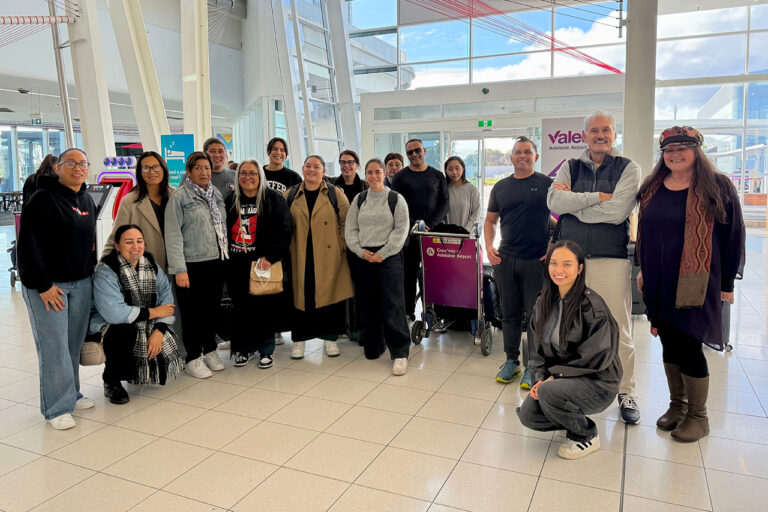
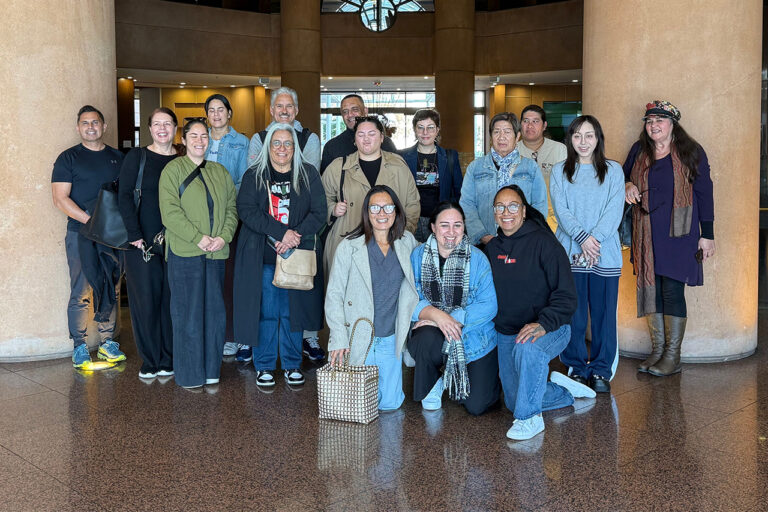
Our Pūrangakura research presentations included:
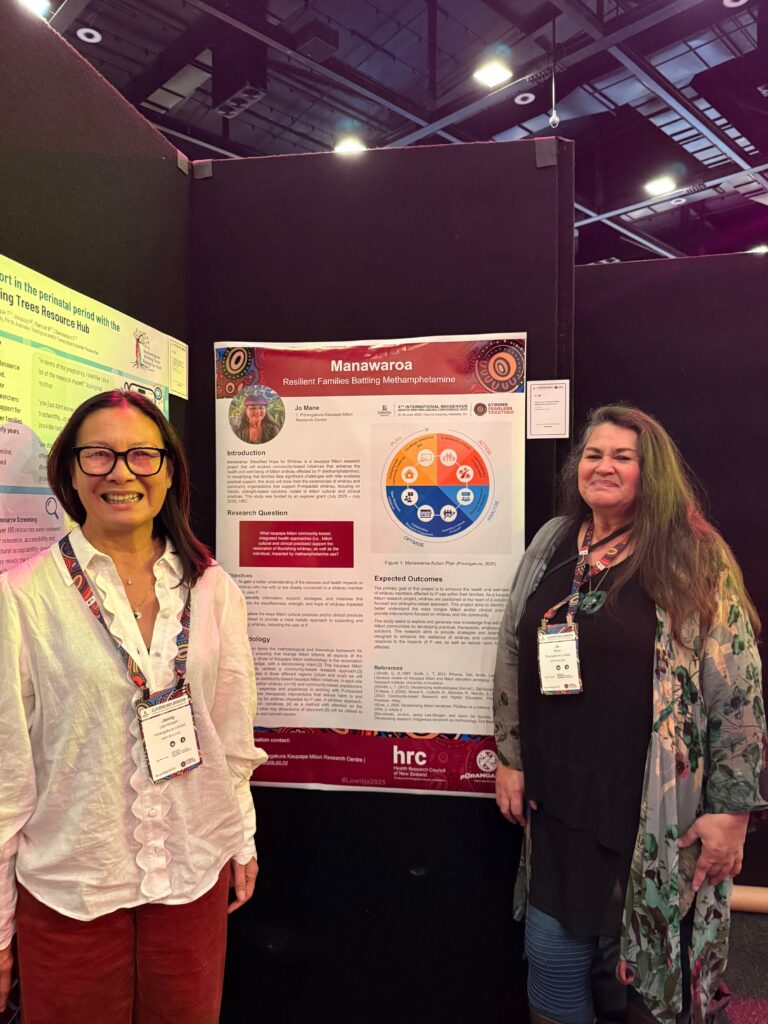
Manawaroa: Resilient Families Battling Methamphetamine
Presenters: Dr Jo Mane
Opting for a poster presentation, “Manawaroa: Steadfast Hope for Whānau” is a kaupapa Māori research project that will explore community-based initiatives that enhance the health and well-being of Māori whānau affected by P (Methamphetamine).
“Manawaroa is about steadfast hope and drawing strength from kaupapa Māori values to support whānau impacted by P, and uplifting them through holistic, community-led solutions.”
— Dr Jo Mane, Project Lead
Generation Kāinga: Fostering fearless leadership in Māori young people through a strengths based research methodology
Presenters: Hanna Marie-Monga, Maia Ratana, Prof Jenny Lee-Morgan
Generation Kāinga presented a compelling and timely response to the urgent need for rangatahi Māori-led solutions to the housing crisis. The presentation powerfully situated housing not just as a material issue, but as a deeply cultural and intergenerational kaupapa tied to tino rangatiratanga, whakapapa, and collective well-being. Generation Kāinga is not asking for permission; it is building futures from the ground up, grounded in tikanga, te reo, and mātauranga Māori.
“Instead of just wanting bricks and water, and having a roof over our head; but actually rangatahi have aspirations for kāinga.”
— Maia Ratana, Lead Researcher
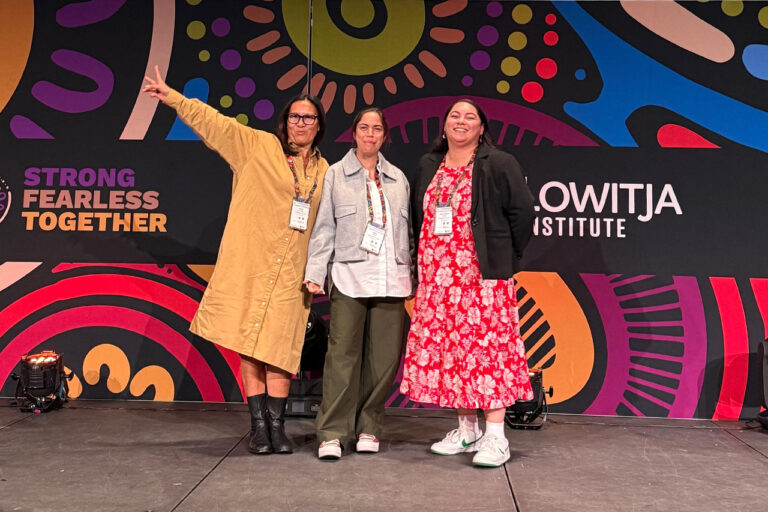
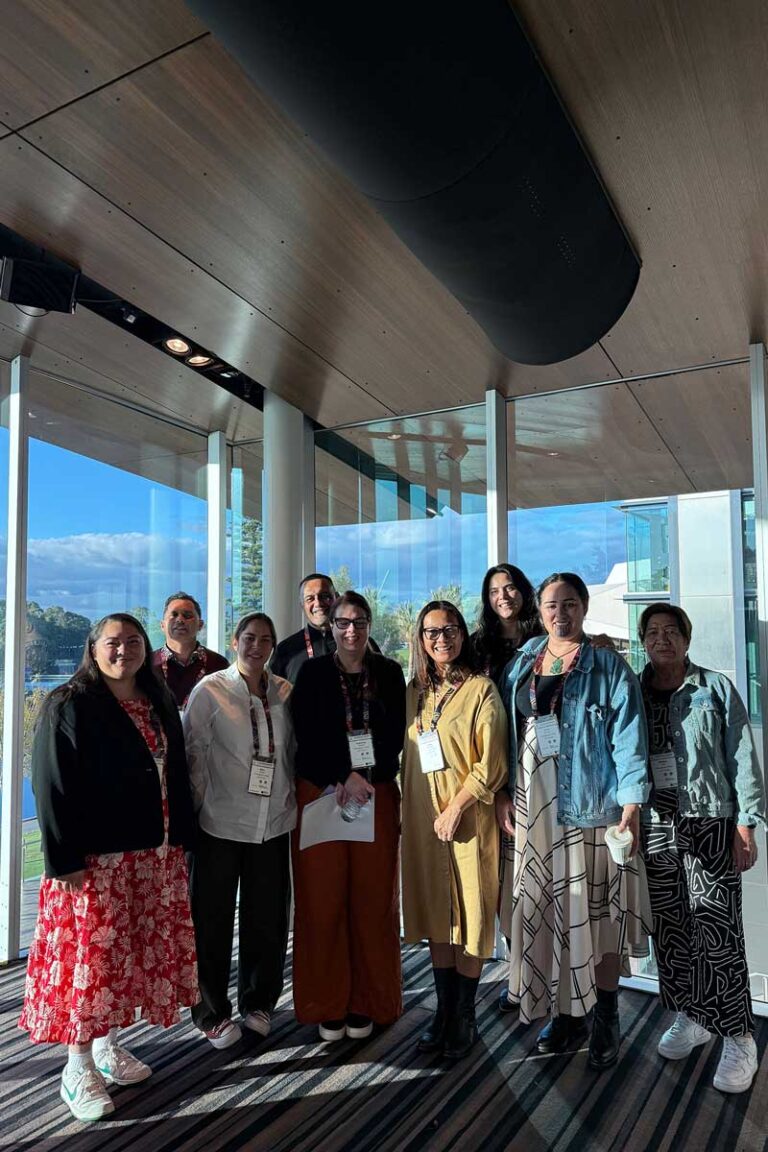
Mapping Ihumātao: Developing an iwi-led digital twin
Presenters: Dr Cat Mitchell
Mapping Ihumātao is a visionary hapū-led research project reclaiming technological sovereignty through kaupapa Māori research. Using digital twin technology, Te Ahiwaru is visualising water infrastructure impacts on their whenua, weaving mātauranga-ā-iwi with innovation. Grounded in wānanga and lived experience, the project strengthens whānau capability to shape future papakāinga developments. It’s a model of decolonial data practice and Indigenous environmental stewardship.
“Digital twin tech isn’t just about innovation, it’s about embedding our stories, our whenua, and our values into tools that serve us.”
— Dr Cat Mitchell, Lead Researcher
Tiakina te Wai: Transforming Engineering practice through pūrākau to heal our people and waters
Presenters: Dr Emily Afoa, Eruera Lee-MorganTiakina te Wai transforms engineering through pūrākau — placing Māori stories, waters, and lived realities at the centre of design. Led by Emily Afoa and Eruera Lee-Morgan, the project challenges dominant technical models, instead uplifting wai as healer, teacher, and ancestor. Using pū-rākau (story-telling), pū-rongo (story-listening) and pū-mahi (story-activation), it offers a decolonising, kaupapa Māori framework for the water sector.
“Wai carries identity, memory, and mauri and when we honour its story, we begin to heal our people too.”
— Emily Afoa, Project Lead
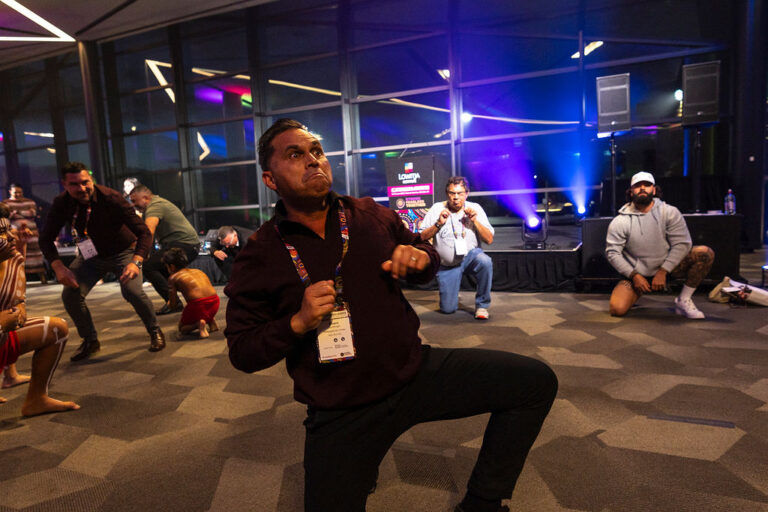
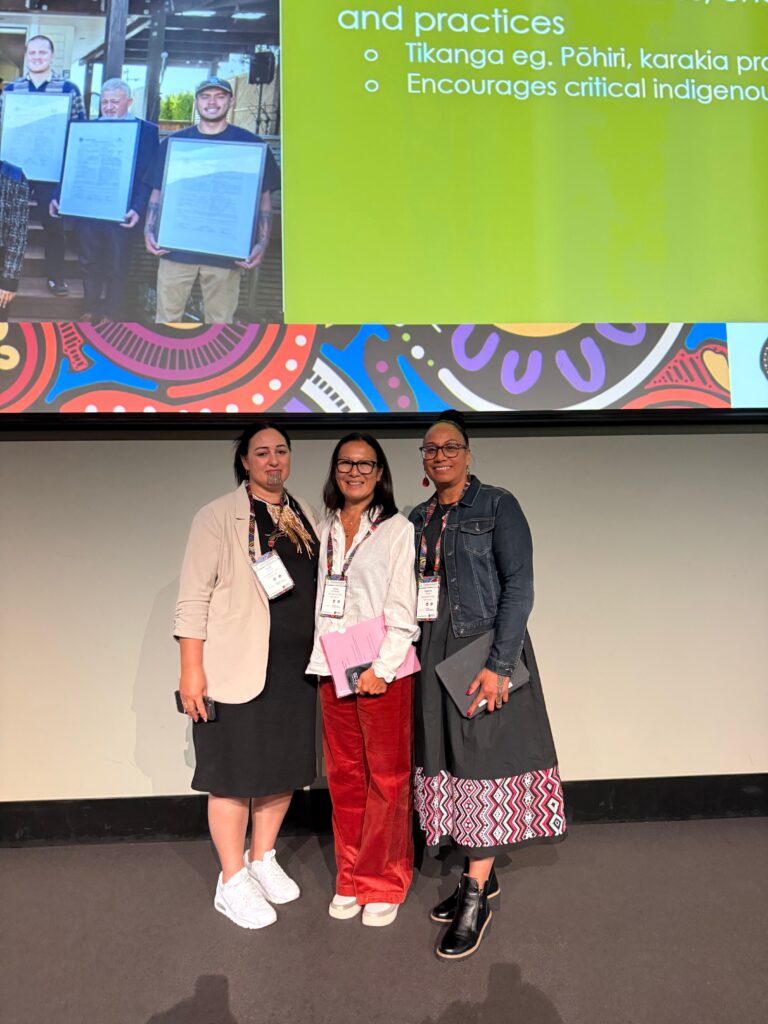
An Intergenerational approach: the role of Pakeke (Elders) in ‘Generation Kāinga’ a youth led research program
Presenters: Ngāhuia Eruera, Irene Farnham, Prof Jenny Lee-MorganIn Generation Kāinga, pakeke are not just elders — they are holders of tikanga, tuakana to rangatahi, and vital guides in reshaping the future. This intergenerational, youth-led kaupapa is grounded in whakawhanaungatanga, manaakitanga, and the transfer of mātauranga across generations. Elders co-lead, role-model, and hold space for transformation, ensuring rangatahi feel seen, heard, and uplifted.
“As pakeke, we don’t lead from the front, we walk alongside, upholding the mauri of our rangatahi and the kaupapa we share.”
— Ngahuia Eruera, Director
Mana Kāinga: a grassroots Māori housing leadership programme
Presenters: Rau HoskinsMana Kāinga is a Māori-led housing leadership programme advancing capability within the housing sector through kaupapa Māori frameworks. It weaves diverse strands of Māori housing knowledge into a cohesive curriculum delivered by Māori for Māori, empowering community navigators to reclaim tino rangatiratanga over their kāinga. The programme acknowledges the resilience of Māori housing history and the ongoing need for whānau-led, culturally anchored solutions to address housing inequities.
“Mana Kāinga is about restoring the tino rangatiratanga of our people to lead housing solutions rooted in our whakapapa and tikanga.”
— Rau Hoskins
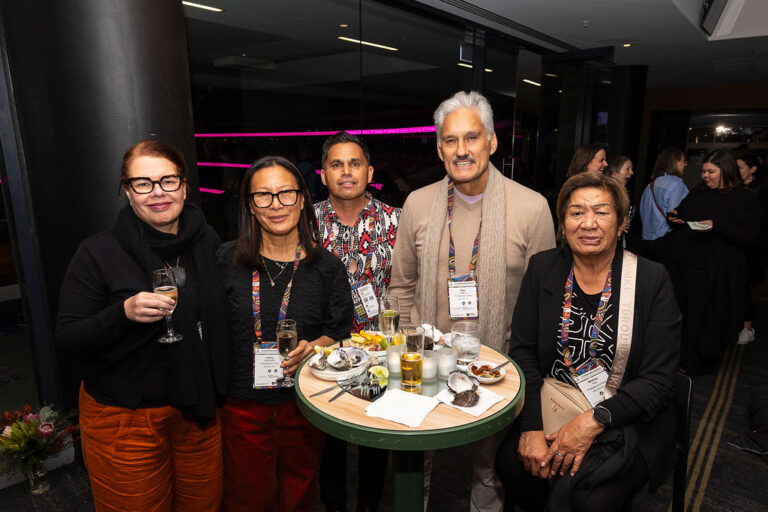
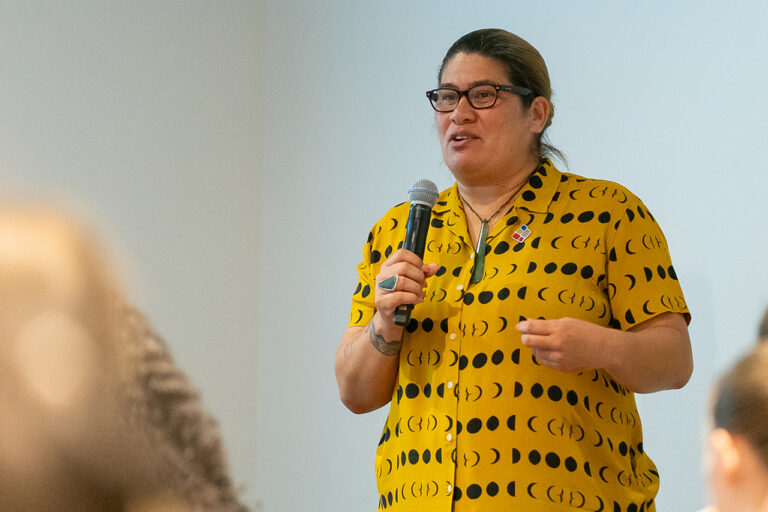
Wai Ora, Kāinga Ora: regenerating our waters for the health of our people through intergenerational kāinga based solutions
Presenters: Liliana ClarkeWai Ora Kāinga Ora is a kaupapa Māori research initiative regenerating te taiao through the lens of kāinga-based, intergenerational resilience. Grounded in whakapapa and guided by wai, this mahi asks how caring for our waters sustains our whenua — and ultimately, our people. The project activates mātauranga Māori, weaving together ancestral knowledge and rangatahi leadership to face climate challenges with aroha and action.
“Mā te wai ka ora ai te whenua, mā te whenua ka ora ai te tangata. We centre wai as life force and ancestor, to heal land, people, and future.”
— Liliana Clarke
An Indigenous pathway to resolving whānau homelessness
Presenters: Hurimoana Dennis, Whitiao PaulTe Puea Memorial Marae’s Manaaki Tangata e Rua (MTeR) model offers an Indigenous-led solution to homelessness rooted in tikanga Māori and whānau-centred care. Since 2016, it has placed 651 homeless whānau into enduring homes, with 80% tenancy retention over 10 years. The model blends strong leadership, cultural values, and innovative decision-making to fill gaps left by government systems. It emphasises self-determination, community partnerships, and holistic support including employment, education, and driver licensing.
“Normally the psyche of agencies is that you can only get help if you go to the office. We decided, no, if the work needs to be done, we’ll do it.”
— Hurimoana Nui Dennis, Te Puea Board Member
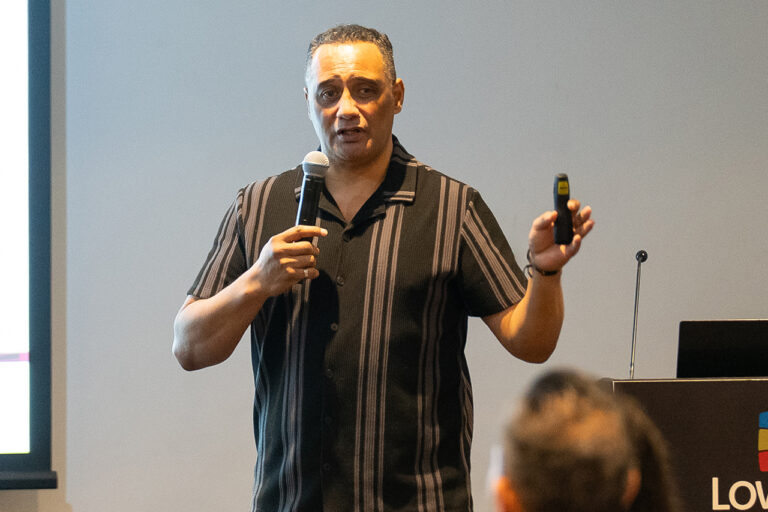
On Wednesday evening, a gala dinner united all delegates. Pūrangakura kaimahi described it as a chance to feel tau following the intensity of the previous days. It provided a meaningful space to deepen connections within Pūrangakura and with other Indigenous researchers. Reflecting on the conference, it was a genuine privilege to have our Pūrangakura whānau alongside fellow Indigenous whanaunga, sharing kai, kōrero, and plenty of laughter.
For more on the Lowitja Institute’s International Indigenous Health and Wellbeing Conference, visit their website here.
